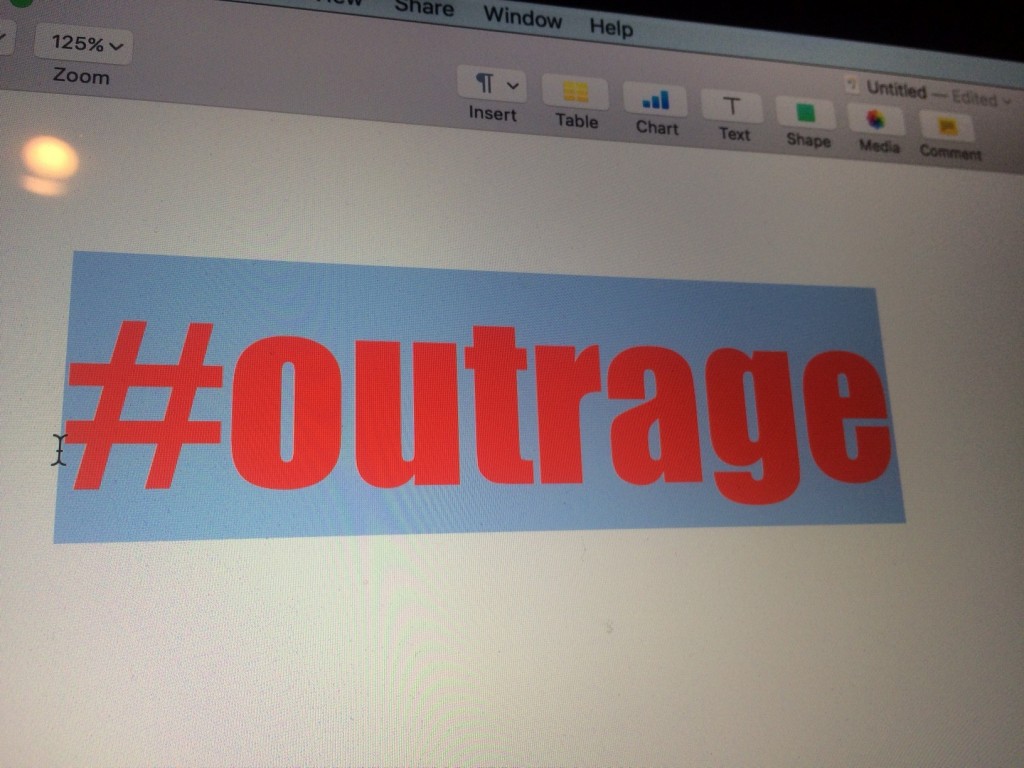Are we capable of having an honest conversation regarding one of the most challenging issues of our time? Are we capable of examining the facts objectively? … evaluating the subjective, distinguishing between what is true and what is instead designed to control opinion?
Omit the rhetoric. Relinquish the bias. Let’s also acknowledge that none of us have coined the market on expertise in this area.
I wish to speak honestly and sincerely about the current threat of terrorism. As witnessed in the news flow and public polling, Americans are increasingly concerned about the danger radical Islamic terrorists pose. The incidents in Paris and San Bernardino have refreshed our fears that have become somewhat subdued the past fourteen years. According to multiple pollsters, the belief that the terrorists are winning the “War on Terror” is near its highest level ever in the past decade. We are concerned.
But… can we talk about it?
I ask because I’m not quite comfortable with some of the semantics in how this sobering issue is being approached.
On one hand, there are those who seem insensitively careless with their words… those who far too easily embrace the quote in response to North Vietnam in the 60’s, most often attributed to Air Force Gen. Curtis LeMay, proclaiming that if the enemy doesn’t comply, “We’re going to bomb them back into the Stone Age!” Republican Presidential candidate, Sen. Ted Cruz, for example, has repeatedly utilized such a phrase. Dropping the bomb on not only the enemy but also on the included, adjacent innocents seems hasty to this semi-humble current events observer. Such seems an attempt to incite emotion, control the public narrative, and appeal to specific voting blocs.
On the other hand, there are those who seem tiptoeing-ly careful with their words… those who attempt to assuage the public narrative and ensure no one makes any association between the current terrorist threat with any aspect of Islam. Democratic Presidential candidate, Hillary Clinton, for example, has repeatedly said that, “Islam is not our adversary. Muslims are peaceful and tolerant people and have nothing whatsoever to do with terrorism.” It is true that Islam is not our adversary, but it is untrue that Muslims have “nothing whatsoever to do with terrorism.” Again to this semi-humble observer (emphasis on the “semi”), such seems an attempt to damper emotion, control the public narrative, and appeal to specific voting blocs.
My point is that both careless and careful speech are inauthentic; they are not helpful in honest conversation — which is necessary in discerning a solution. Yet here’s where our partisan bias distorts our observations; depending on our engrained bent, we call the inciting comments either “factual” or “fear mongering”; we also call the dampening comments either “strategic” or “stupid.”
Oh, how I crave honest conversation…
The current, most pressing terrorist threat arises from persons who identify themselves as adherents of Islamic ideology. While by no means are all Muslims radical, a significant percentage is.
Consider the observations of popular American author Sam Harris — note, atheist author Sam Harris: “We have 1.5/1.6 billion Muslims… Just imagine some concentric circles here. You have at the center, you have jihadists. These are people who wake up in the morning, wanting to kill apostates, wanting to die trying; they believe in paradise; they believe in martyrdom. Outside of them we have Islamists; these are people who are just as convinced of martyrdom and paradise and wanting to foist their religion on the rest of humanity, but they want to work within the system. They’re not going to blow themselves up on a bus. They want to change governments; they want to use democracy against itself… The next, largest circle is the fundamentalists… they hold views about human rights and about women and about homosexuals that are deeply troubling.”
Hundreds of thousands of persons are considered as those inner, most violent “jihadists.” The outer, equally troubling circles arguably contain millions more.
This, friends, is tough to talk about. It’s too easy to fall into the narrative-controlling traps that are either disrespectful or watered down. We must be respectful — as opposed to the inciting, bombing and Stone Age comments. We must also be honest — as opposed to the dampening, acting as if Islam-isn’t-part-of-the-problem comments.
I thus find myself soberly returning to question #1: are we capable of having an honest conversation regarding one of the most challenging issues of our time?
Respectfully…
AR










